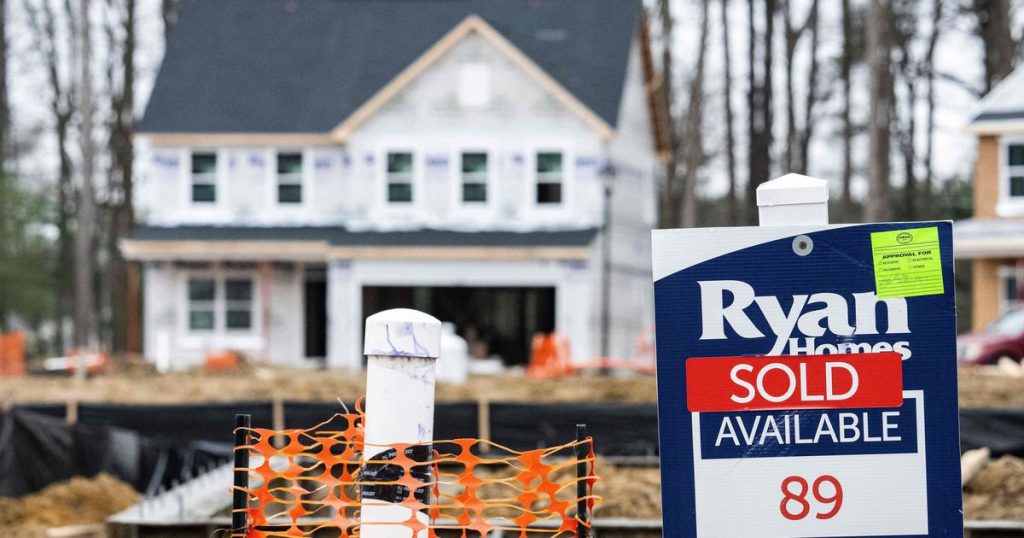The Biden administration is working to finalize regulations to reduce planet-heating emissions from lightbulbs, automobiles, and trucks before a key deadline that could potentially be undone by Donald Trump if he regains the White House. One significant proposal to update federal housing rules that could save homeowners money on energy bills is currently stalled, impacting about 160,000 new houses built each year in costly housing markets. Reforms to federal housing programs are seen as a model for reducing emissions and utility bills, but delays in finalizing the rules are unclear. If Biden does not win reelection, Trump could have the final say on any post-May or June regulations.
Critics of the greener housing rules argue that the changes would raise new home prices when many Americans already struggle to find affordable housing. Requiring homes to meet stricter energy efficiency standards for federally-insured loans could add building costs, but also result in significant energy savings over the life of the mortgage. While some markets could see new homes saving more energy, the delay in implementing federal standards could lead to missed opportunities for energy efficiency improvements. The lack of nationwide building codes and varying adoption of model standards by states highlights the need for stricter federal standards to reduce emissions.
In the U.S., nearly half the states still use outdated energy standards for housing, with only a few adopting the latest codes developed by the International Code Council. Federal funding to encourage states to adopt newer and stricter codes is available, highlighting the importance of federal standards for cutting back on emissions. Industry groups have expressed concerns about mandates that could limit access to financing options for homebuyers, especially those with limited financial resources. Despite pushback from trade groups representing gas utilities, federal regulators are urged to adopt the latest housing codes to promote cleaner buildings.
As utility debt rises and homeowners struggle with energy costs, the transition to greener homes could help alleviate these issues by reducing reliance on fossil fuels. The impact of energy-efficient homes on homeowners’ ability to manage energy bills, especially during geopolitical events or extreme weather, is significant. The enactment of stricter housing codes, while facing resistance from industry groups, is seen as a critical step in curbing emissions and reducing energy consumption. The deadlock in finalizing federal regulations on housing loan standards raises concerns about potential delays in implementing energy efficiency measures in new homes.
Regulations to reduce emissions and promote cleaner building codes have become a battleground issue under the Biden administration, given their potential impact on emissions reduction and energy consumption. The delay in finalizing regulations on housing loan standards by HUD raises questions about internal upheaval and potential impacts on climate action initiatives. With a looming deadline under the Congressional Review Act and the potential for rules to be undone by future administrations, there is urgency in finalizing regulations to promote a transition to cleaner energy sources and reduced emissions. Despite challenges from industry groups and potential delays, the Biden administration is committed to implementing stricter energy efficiency standards to address climate change.


